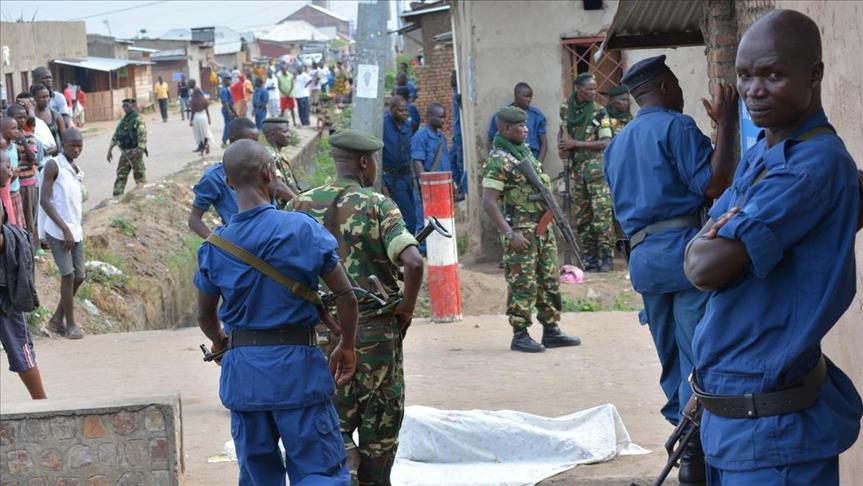
Kampala
By Halima Athumani
KAMPALA, Uganda
Mediators of the ongoing Burundi crisis have resolved to intensify consultations after peace talks failed to kick off in northern Tanzania’s Arusha city.
Addressing journalists in the Ugandan capital of Kampala Friday, Chrispus Kiyonga, Ugandan Defense Minister and acting facilitator of the Burundi crisis, said: “We are going to intensify the consultations, because…any other person who dies because there is a conflict is one too many, it’s not acceptable”.
The talks were meant to start Wednesday in Arusha but both the government and opposition teams did not show up, leaving the mediators to discuss the issue only among themselves and regional leaders. Ugandan President Yoweri Museveni is the chief mediator in the peace effort.
During the launch of the peace talks in December in central Ugandan town of Entebbe, Museveni said all parties should be allowed in the peace process despite their past criminal and violent histories.
“We need to let them speak and we hear them, if they have committed crimes, coming to the table does not mean that their crimes are forgotten, no,” Kiyonga elaborated on the president's remarks.
However, the Burundi government team, led by Minister Alain-Aime Nyamitwe, demanded that whoever was behind the failed coup in May 2015 and committed crimes in the past must appear before a court and should not be part of any dialogue process.
The Entebbe meeting had also agreed that talks should be moved to Arusha, given that Museveni was busy in his campaigning ahead of the Feb. 18 general elections. However, Kiyonga said that Burundi now also wanted to change the talks venue.
Meanwhile, the African Union suggested that a pan-African force of 5,000 troops should be sent to Burundi to help the situation. But the Burundian President Pierre Nkurunziza said last week that Burundians would shoot at African Union peacekeepers sent into the country.
“Everyone has to respect Burundi borders, in case they violate those principles, they will have attacked the country and every Burundian will stand up and fight against them,” Nkurunzinza had warned in a radio broadcast.
Kiyonga said Burundi, which is part of the African Union, must agree to the bloc's decisions made in the Ethiopian capital Addis Ababa. “To threaten to shoot at an African force is not right, for an African to say he will shoot at an African force that’s a mistake, you cannot shoot at our force, then who will protect us,” he added.
He said that the AU Chief Commissioner, Nkosazana Dlamini-Zuma, was carrying out consultations and would follow the right procedure before deploying any forces in Burundi.
“What we want to end is conflict and people being killed unnecessarily, I have seen pictures of people being burnt, this must stop, that’s why we want this dialogue to take off quickly and discuss all issues,” Kiyonga said.
Since April 26, 2015, Burundi has plunged into an increasingly severe political and security crisis after Nkurunziza announced he will seek a third term in office. He survived a coup attempt in May and secured a third term in disputed elections in July.
Spates of violence have erupted with close to 100 people being killed in clashes. Over 218,000 Burundians are now refugees in neighboring countries within the East African region.
Anadolu Agency website contains only a portion of the news stories offered to subscribers in the AA News Broadcasting System (HAS), and in summarized form. Please contact us for subscription options.



